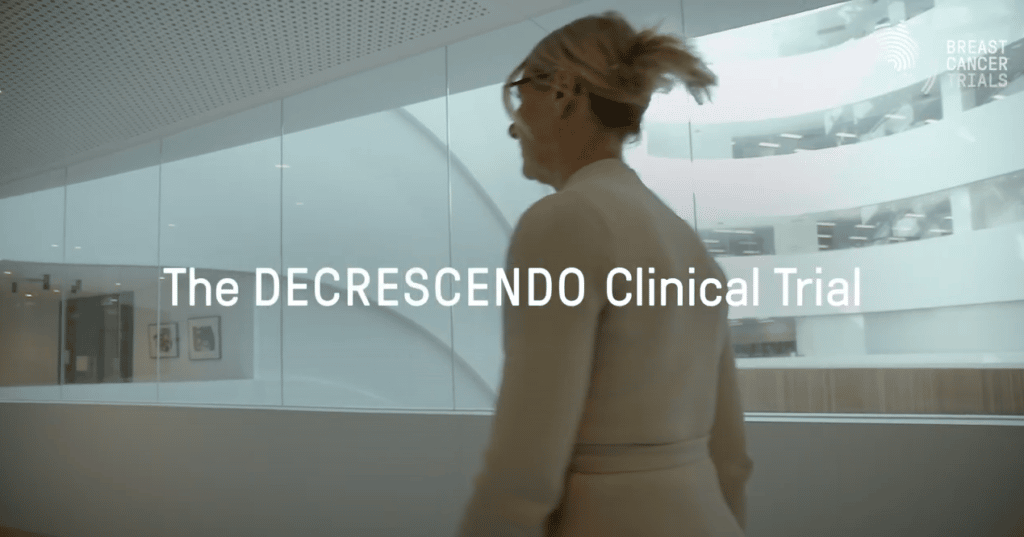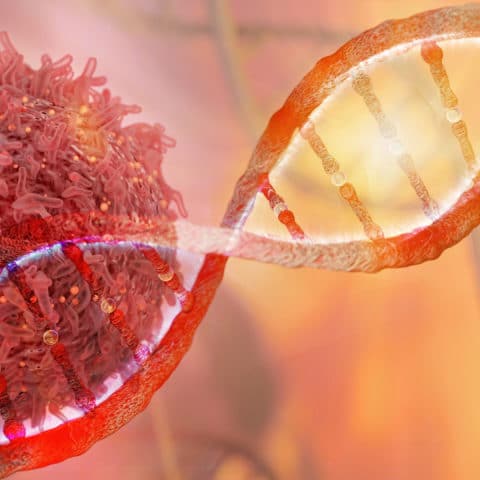- Research
- 2022-2026 Research Strategy
- Open Clinical Trials
- Closed Clinical Trials
- What is a Clinical Trial?
- Why Participate in a Clinical Trial
- Remote Telehealth Pre-Screening Process
- Research Achievements
- Publications
- Research Development and Funding
- Participating Institutions
- International Collaboration
- BCT Trials & Projects Summary
- Translational Research
- Clinical Fellowship Program
- International Fellowship Support
- Annual Scientific Meeting
- Travel Grants and Awards
- About
- Our Impact
- Fundraise
- Donate
- Researcher Login
- Cart
The DECRESCENDO Clinical Trial
Pertuzumab and trastuzumab are types of anti-HER2 therapy that work against HER2-positive breast cancer by blocking the chemical signals that tell the cancer cells to grow. Usually, pertuzumab and trastuzumab are given separately into the vein (intravenously) over about 60 minutes every 3 weeks. In DECRESCENDO, pertuzumab and trastuzumab are combined and given as one injection under the skin (subcutaneous) every 3 weeks. The first dose of the combination takes about 8 minutes to inject and each dose after that takes about 5 minutes, so the time to receive each dose is much shorter than getting an intravenous infusion of the medicines.
Many HER2-positive breast cancers respond well to treatment before surgery, which means that the cancer is less likely to come back later. In DECRESCENDO, patients whose cancer has responded so well that there are no cancer cells visible in the breast tissue removed at surgery, are given less chemotherapy than what is usually given as routine care. It may therefore be possible to develop a new treatment program to minimise chemotherapy side effects whilst still being effective in treating breast cancer.
DECRESCENDO will look at how much cancer comes back by 3 years after treatment in participants who have received the combined pertuzumab and trastuzumab subcutaneous injection and had no cancer found in the breast at surgery.
Before surgery, all participants will receive the pertuzumab/trastuzumab injection every 3 weeks for 4 cycles (12 weeks) as well as standard chemotherapy, either paclitaxel once a week for 12 weeks, or docetaxel once every 3 weeks for 4 cycles (12 weeks).
Treatment after surgery depends on if any cancer is seen in the breast tissue that has been removed:
- If there is no cancer, pertuzumab/trastuzumab subcutaneous injections will continue every 3 weeks for another 42 weeks.
- If there is some cancer in the removed tissue, participants will receive intravenous trastuzumab emtansine (TDM-1) every 3 weeks for another 42 weeks.
- If there is a moderate to large amount of cancer in the removed tissue, participants will also have extra intravenous chemotherapy (e.g. with an anthracycline and cyclophosphamide) for 9 to 12 weeks in between surgery and start TDM-1 infusions every 3 weeks for another 42 weeks.
- In all cases, participants may also receive radiotherapy after surgery.
Participants will have a total of 13-16 months treatment. Follow up continues for a further 4 years after treatment finishes – every 3 months for years 1 & 2, and then every 6 months for years 3 and 4 (total time on study approximately 5 years).
DECRESCENDO is an international clinical trial and will be managed by BCT in partnership with Institut Jules Bordet (IJB) and the Breast International Group (BIG).
A total of 1065 participants will be enrolled over 30-36 months; approximately 250 patients will be enrolled at 24 Australian and 3 New Zealand sites.
Prof Kelly-Anne Phillips is the BCT Study Chair of the DECRESCENDO study.








